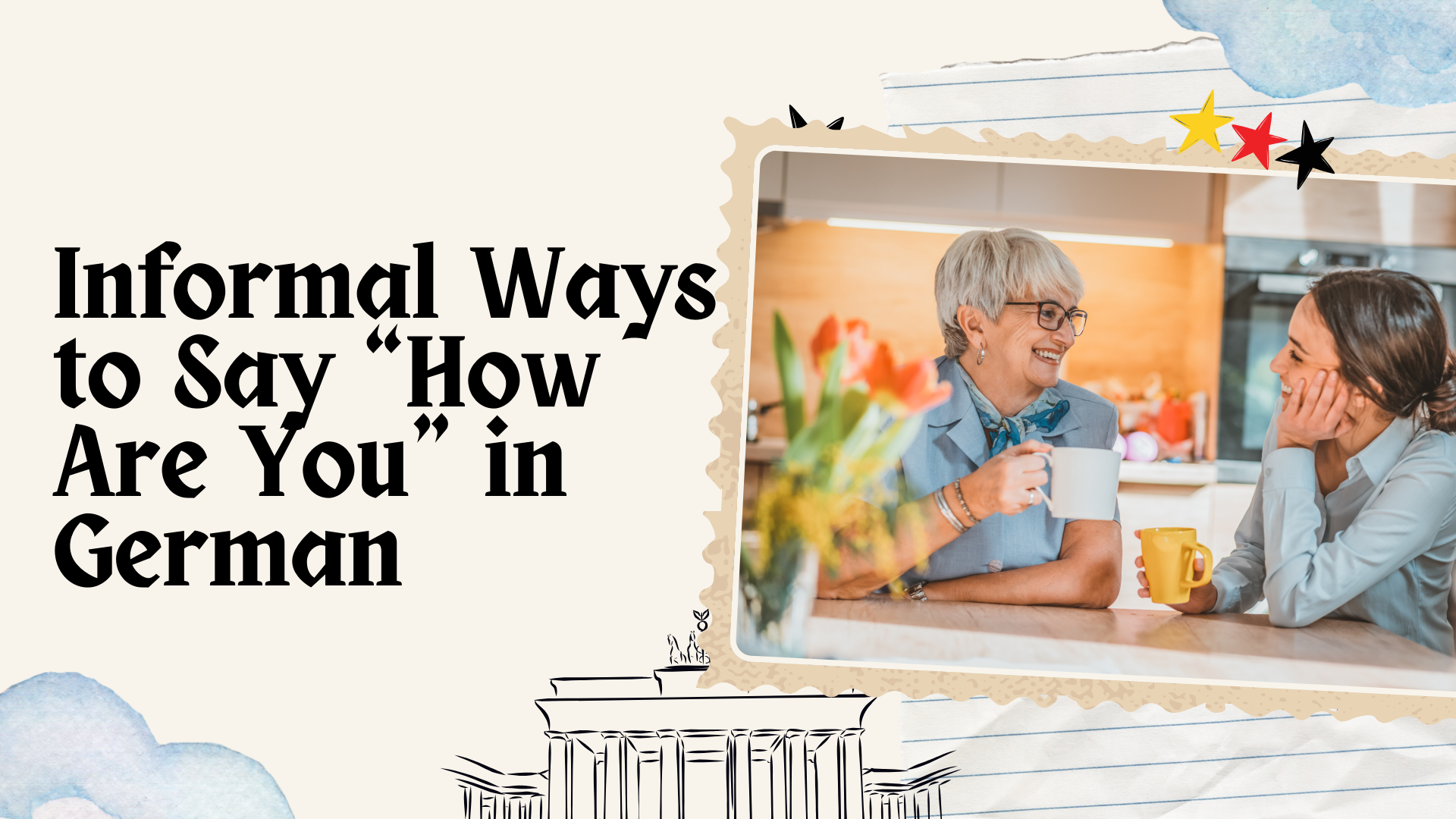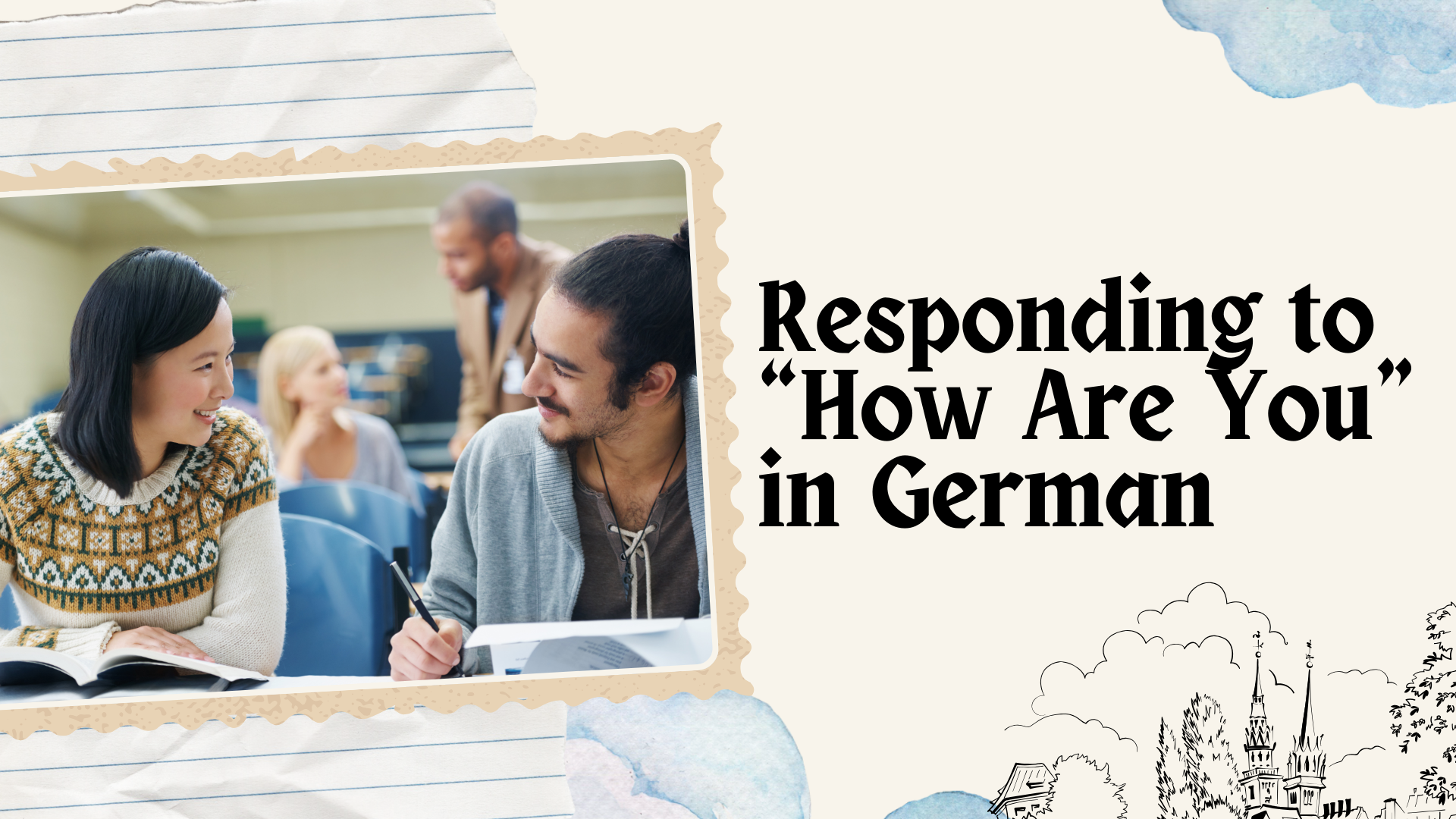In German, asking ‘How are you?’ isn’t just simple; it’s an art. There are 35+ different ways to say it, each fitting a specific social situation. You can go casual with ‘Wie geht’s?’ when talking to friends or choosing a more formal ‘Wie geht es Ihnen?’ in business settings. Understanding when to use each phrase can really level up your German speaking skills. It also helps you get a better grip on German culture and manners. It looks simple, but there’s a lot more going on when you pick the right way to ask someone how they’re doing.
Formal Ways to Say “How Are You” in German

Informal greetings work well among friends and family, but in formal situations, it’s better to use phrases like ‘Wie geht es Ihnen?’ to ask how someone is doing. This phrase is usually for professional settings, with superiors, or when you’re talking to someone you don’t know well. It shows respect and keeps things professional. For very formal events like ceremonies or formal public gatherings, ‘Wie steht es bei Ihnen?’ is also fitting, adding an extra touch of formality to the conversation.
- Wie geht es Ihnen? – How are you?
- Wie ist Ihre Gesundheit? – How is your health?
- Wie steht es um Ihre Gesundheit? – How is your health doing?
- Wie geht es Ihnen beruflich? – How is everything going at work?
- Haben Sie sich gut eingelebt? – Have you settled in well?
- Wie läuft es bei Ihnen? – How is everything going with you?
- Wie geht es Ihrer Familie? – How is your family?
- Wie geht es Ihnen heute? – How are you today?
- Wie fühlen Sie sich? – How do you feel?
- Wie steht es um Ihre Gesundheit? – How is your health?
- Wie ergeht es Ihnen? – How are things going for you?
- Wie läuft es bei Ihnen? – How is it going with you?
Informal Ways to Say “How Are You” in German

In German, people use a few laid-back ways to ask ‘How are you?’ depending on how well they know someone. The common phrase ‘Wie geht es dir?’ works well with friends, classmates, and family.
For closer friends, they often shorten it to ‘Wie geht’s?’ dropping the ‘es’ to keep it casual. Even more informal is ‘Wie läufts?’ which has a playful vibe. Each way of asking shows how close you are with someone and fits the mood of the conversation.
- Wie geht’s? – How’s it going?
- Wie läuft’s? – How’s it going?
- Was geht ab? – What’s up?
- Wie sieht’s aus? – How’s it looking?
- Alles gut bei dir? – Everything good with you?
- Wie geht’s dir so? – How’s it going for you?
- Wie stehst du da? – How are you doing?
- Was geht bei dir? – What’s going on with you?
- Wie fühlst du dich? – How do you feel?
- Wie geht’s? – How’s it going?
- Alles klar? – Everything good?
- Wie läuft’s? – How’s it going?
- Was geht? – What’s up?
- Wie geht’s dir? – How are you?
- Was macht’s? – How’s it going? (Literally: What’s it doing?)
- Wie stehst du? – How are you doing?
Also Read: 30 Unique Ways To Say ‘No’ In German [Formal And Informal]
Responding to “How Are You” in German

When someone asks you ‘Wie geht es Ihnen?’ or ‘Wie geht’s?’ in German, knowing how to reply is key. You can simply say, ‘Mir geht es gut, danke,’ which means ‘I’m fine, thank you.’
If you’re just feeling okay, you might say, ‘Es geht,’ which means ‘It’s okay.’ If you’re not feeling great, you can say ‘Nicht so gut,’ or ‘Not so good.’
Depending on how close you are with the person and the context, you can keep your response short or go into more detail about how you’re feeling. This lets you either keep the conversation light or dive deeper into your well-being.
- Mir geht’s gut, danke. – I’m fine, thank you.
- Nicht schlecht, danke. – Not bad, thank you.
- Es könnte besser sein. – It could be better.
- Ich bin ein bisschen müde. – I’m a bit tired.
- Mir geht’s fantastisch. – I’m fantastic.
- Ich fühle mich nicht so gut. – I don’t feel so well.
- Alles in Ordnung. – Everything’s fine.
- Mir geht’s gut, danke. – I’m good, thank you.
- Es geht mir sehr gut. – I’m doing very well.
- Alles bestens, danke. – Everything’s great, thank you.
- Mir geht’s okay. – I’m okay.
- Nicht so gut, leider. – Not so well, unfortunately.
Conclusion
Learning how to ask and respond to ‘How are you?’ in German helps you understand more about the culture. When you know these phrases well, you can really connect with people who speak German. It shows you respect them and get the way they talk.
You can be formal or casual, but your choice tells a lot about how close you are to someone. Keep practicing these phrases, but remember, good conversation isn’t just about the right words. Listening well and answering right is just as important. This helps you build stronger relationships and communicate better, which is key in the diverse world of German culture. Keep visiting the Translation Blog for more informative articles like this.

